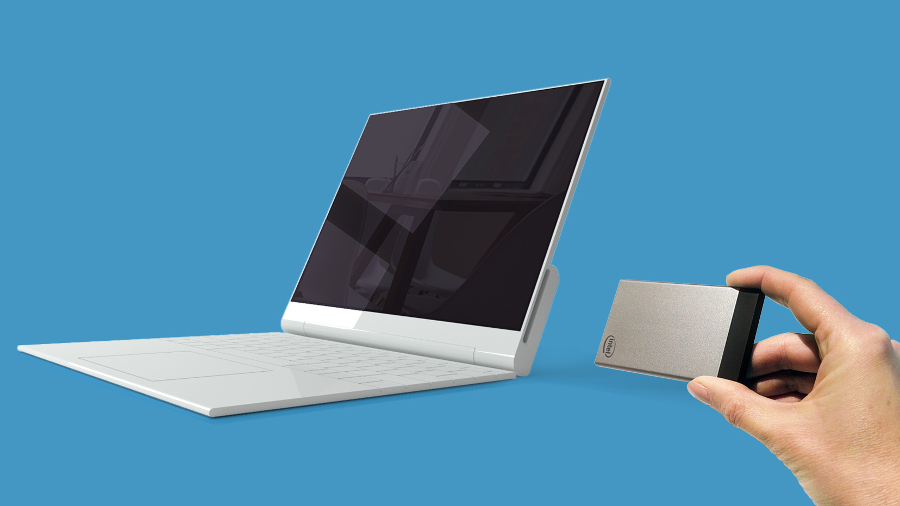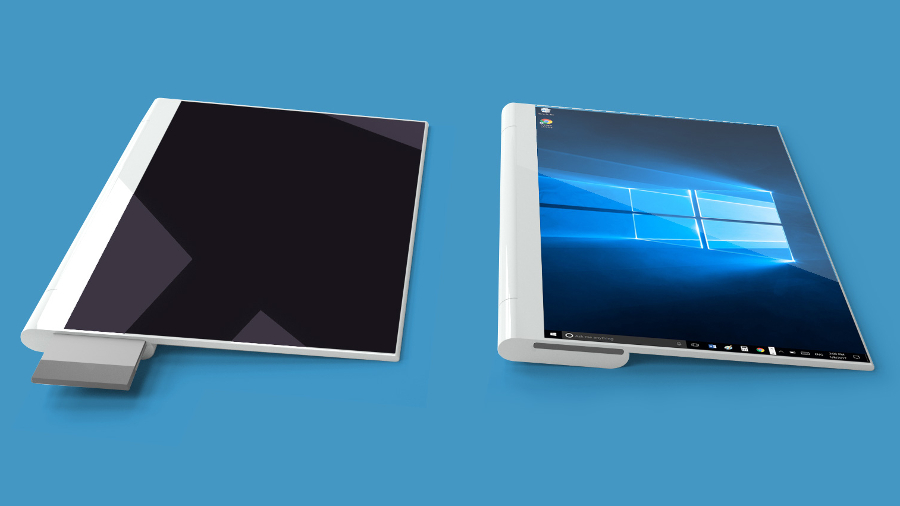The first ever truly upgradable laptop has a card up its sleeve
NexDock notebook shell has a Compute Card ace-in-the-hole

There’s a new NexDock coming out later this year, a shell of a hybrid laptop which gets its processing brains from either a Windows smartphone, computer board like a Raspberry Pi, plus with this fresh model, support has been added for Intel’s recently revealed Compute Card.
If you didn’t see it, the Compute Card is a credit card-sized computer board boasting a Kaby Lake processor, along with its own memory, storage and wireless connectivity, designed to slot into IoT gadgets like smart fridges, providing an upgradable brain for the device.
And the new NexDock is simply a shell of a convertible laptop, complete with an HD display, keyboard, touchpad, and interchangeable USB Type-C modules for connectivity – plus it now has a slot for the Compute Card on the side.
Simply insert a Compute Card and it effectively provides the laptop’s hardware innards (and further down the line, it’s an absolute cinch to upgrade – just plug a more powerful card in).
Or as mentioned you can hook it up to a Windows 10 smartphone and use Continuum to provide you with a UI more suitable for desktop work on a laptop – just as with the Mirabook notebook shell we saw earlier this month.
- These are the best USB-C accessories, cables and adapters

Cunningly convertible
The big differences between the NexDock and the Mirabook are that the former is a 2-in-1 detachable, so it can be a tablet or laptop – plus it has the slot for supporting the Compute Card.
Intel’s computer-on-a-card is expected to launch around the middle of the year, when samples of the NexDock will become available and a crowdfunding campaign for the latter will kick-off, with availability likely due in the second half of 2017.
Are you a pro? Subscribe to our newsletter
Sign up to the TechRadar Pro newsletter to get all the top news, opinion, features and guidance your business needs to succeed!
More hardware spec details and pricing of the NexDock will be revealed in due course.
- AMD vs Intel: which chipmaker does processors better?
Darren is a freelancer writing news and features for TechRadar (and occasionally T3) across a broad range of computing topics including CPUs, GPUs, various other hardware, VPNs, antivirus and more. He has written about tech for the best part of three decades, and writes books in his spare time (his debut novel - 'I Know What You Did Last Supper' - was published by Hachette UK in 2013).